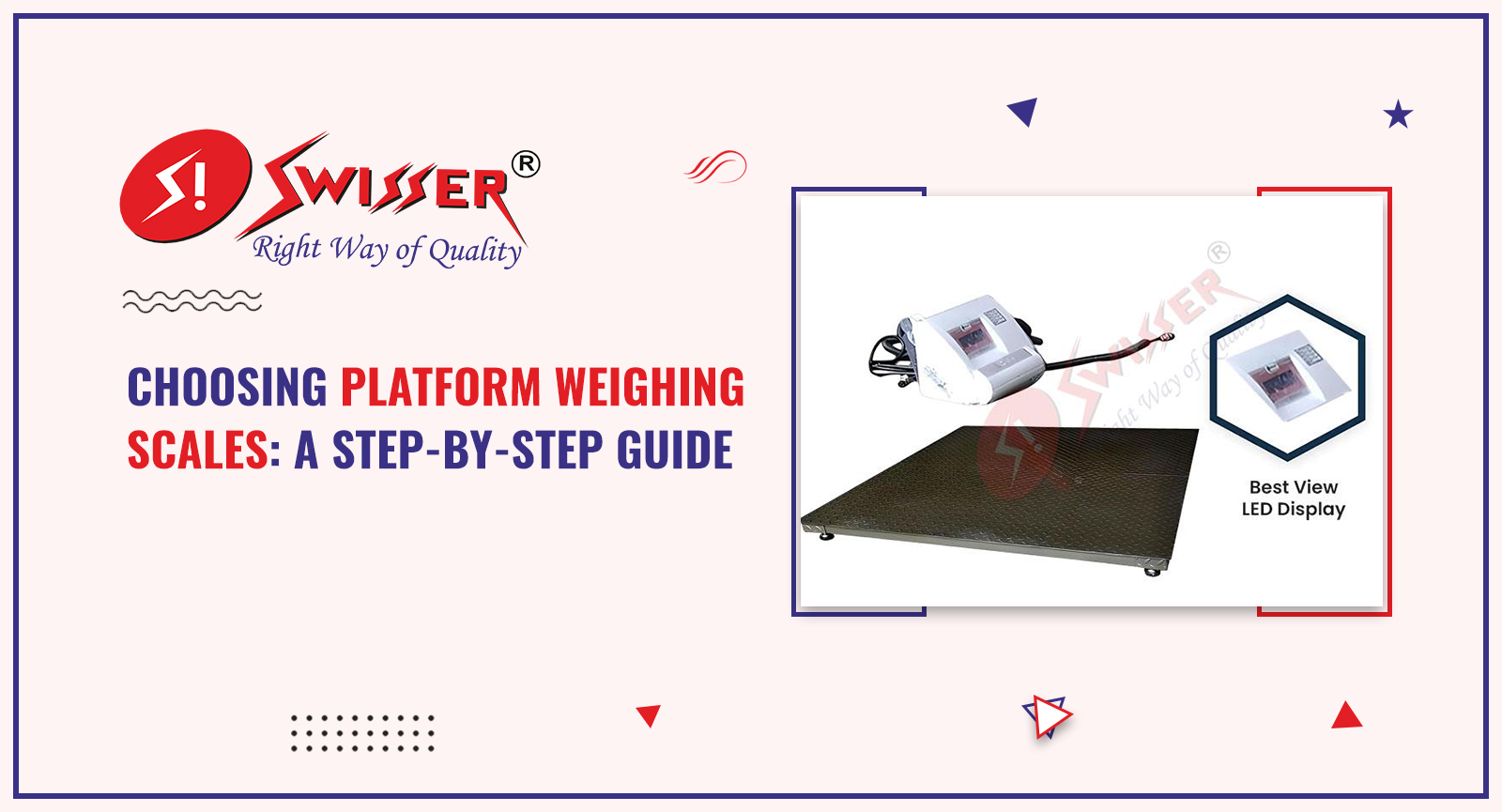HomeBlogPlatform Weighing ScaleChoosing Platform Weighing Scales: A Step-by-Step Guide
Choosing Platform Weighing Scales: A Step-by-Step Guide

Platform scales are sturdy and adaptable, and may be used to measure a wide range of large and heavy goods, from odd-shaped shipments to industrial equipment to cattle. Large platform weighing scales are unquestionably valuable in industries such as manufacturing, agricultural, warehousing, retail, medical, construction, waste management, automotive, research and development, and catering.
Finding which model is best for you and your organization may be challenging. In this blog post, we’ll share the numerous applications of platform scales and offer tips on what to look for when selecting sets for your organization.
What are platform weighing scales?
Platform scales provide a wide, flat weighing surface that is generally larger than that of bench scales. They are useful for weighing large goods, animals, or those who are unable to use traditional scales. Many industrial platform scales are also suitable for counting, check weighing, and percentage weighing applications.
They are frequently supplied with a separate weight indicator/display that may be relocated or installed as needed. To this aim, they come in a variety of sizes, with or without wheels, optional ramps, and platform designs.
How do Platform Scales Work?
Floor scales, like most balances, include many load cells located on the weighing platform. These sensors translate the force applied to them into a weight.
To use floor scales, place the object to be weighed on the platform, making sure that its center of gravity is in the middle of the balance. The weight of the thing is then shown on the display. Some big platform scales can count, verify weight, and calculate percentages, while others allow you to store, transmit, or print data.
Top Tips for Selecting the Best Platform Weighing Scales
Consider the following factors when selecting an appropriate platform balance scale for your organization.
1.) Application.
The first thing to consider is the size, maximum weight, and toughness of the goods you plan to weigh. This will affect the size, range, and durability of the platform scales you select. Subsequently, consider the objective of your floor balance, such as if you merely need to determine accurate weights or if you need a counting or pricing conversion feature.
2.) Budget:
Platform weighing scales provide a rapid return on investment by improving convenience, accuracy, and efficiency, resulting in increased production. However, it is always critical to balance your organization’s needs with its budget limits.
3.) Weighing range.
When choosing a platform scale, consider the lowest, maximum, and average weights of the things you will be measuring. This ensures that you choose a balance with a range that is appropriate for your application. Consider your desired measuring units, such as metric, imperial/non-metric, or both.
4.) Platform size.
Consider the size of the things you’ll be weighing. To ensure measurement accuracy, objects should not overhang the scales, and their center of gravity should be at the center of the platform. It is advised that you select a balance that is somewhat bigger than required. This means it may be used to weigh your largest goods while also future-proofing against applications requiring even larger parts.
5.) Scale Design and Portability.
Platform weighing scales come in many designs to satisfy the needs of various industries, including:
- Floor-mounted or stand-alone.
- Heavy duty.
- With a column-mounted display.
- With a wall-mounted display.
6. Ease of Use
Select a platform scale that provides a straightforward technique of calculating and documenting outcomes; too complex scales can lead to inefficiency, jeopardizing your company’s production and profitability.
Where are platform weighing scales used?
Platform scales, which are diverse in design and functionality, give solutions to a wide range of challenges in a variety of industries, from weighing huge products and farm/domestic animals to counting parts and calculating expenses.
Manufacturing Sector
Industrial platform scales ensure quality control and correct inventory. They are used to weigh raw materials, components, and completed goods.
Agriculture and Farming Sector
Large platform weighing scales are used for weighing animals, crops, and feed. As a consequence, farms may utilize big platform scales to track animal and crop weights.
Warehousing and Logistics Industry
Warehouses and logistics centers utilize industrial platform scales to ensure that shipments conform with weight standards and calculate shipping costs.
Retail & Wholesale
Platform balances allow you to rapidly compute the cost of food sold by weight, such as fruits, vegetables, meats, and sweets. Several platform scales include a specific feature for this purpose.
Recommended Platform Weighing Scales
Swisser Instruments, one of the top platform weighing scale manufacturers, provides a variety of weighing equipment tailored to a wide range of industries and applications. Discuss your requirements for a weighing scale with our professionals. Our team will manufacture and offer a fully customized weighing machine according to your specifications.
